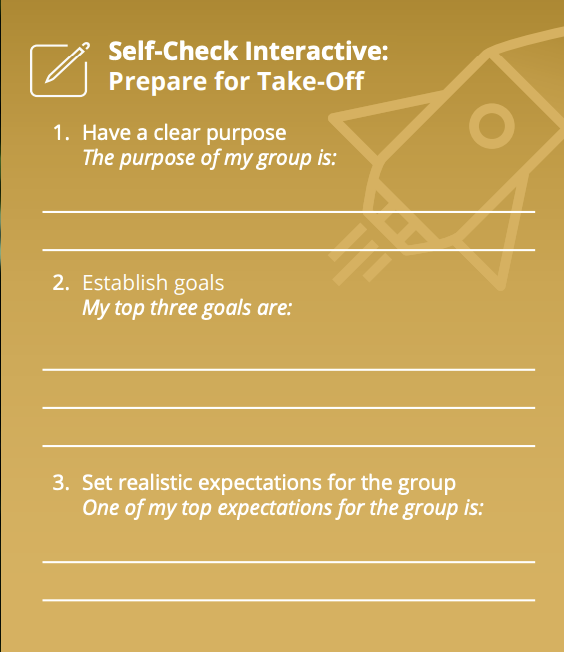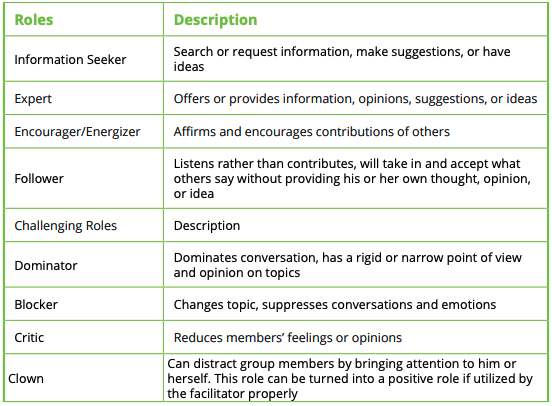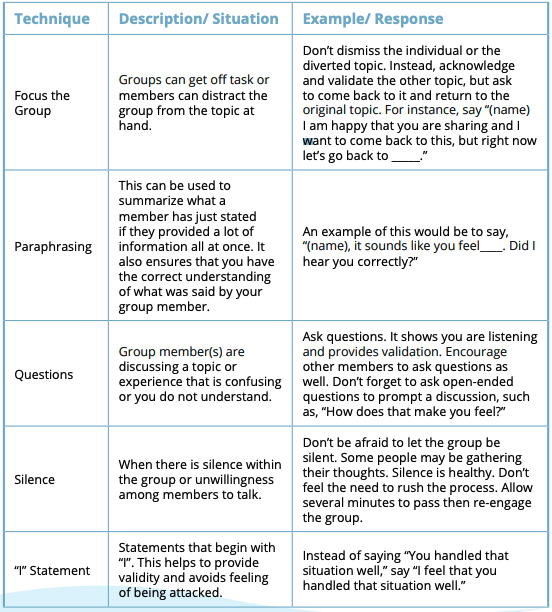So you want to build a support group for your community?
Thank you for including us on your journey! Most likely you have a need for this toolkit Support Groups: A RARE Advocate’s Guide to Connection because you or a loved one has a rare disease. As you prepare to use the tools in this kit, we want you to know that you are not alone. We are in this together. It is our hope that the personal stories, resources, tips, and suggestions for self-reflection in this guide will make the road to advocacy for your rare disease more manageable.
We know, all too well, that a lack of information and support for people living with RARE diseases can lead to feelings of dis-ease. Please know, it’s not just you— you can feel depressed, anxious, and isolated and it’s common in the RARE community. Fortunately, RARE Advocates see these challenges as opportunities to take control back from their disease by filling the void with support groups, knowledge, and advocacy.
While we believe you will benefit from reading all of the material in this toolkit, we don’t want to overwhelm you. The articles do not have to be read in order. We’ve included a table of contents to make it convenient for you to find the information you are most interested in at this time.
If You Build It They Will Come
In the popular film Field of Dreams the lead character, Ray Kinsella, played by actor Kevin Costner, is on an unusual mission. He is determined to build a baseball field on his Iowa farm because of a mysterious voice in his cornfield that urges him on with the puzzling assertion, “If you build it, they will come.”
Here on the big screen of real life, it’s likely your motivation for starting a support group does not include a mysterious cornfield or Kevin Costner; but if it does, we’d love to hear about it! Otherwise, whatever your motivation is for starting a support group, we applaud you.
There are many things to consider as it relates to starting a RARE support group. Some of the information in this toolkit will likely be familiar to you. While, other information is more specific to the protocols of being a RARE support group facilitator. So, if like Ray Kinsella, you’re motivated to “build it,” this article is a good place to start.
“You will know you are ready to start a support group because you will be far along enough in your own journey to know what is in front and behind you”
-Anne Leserman, LCSW, Assistant Director of Community Services, Huntington’s Disease Society of America
The Playing Field 
Listed are some of the benefits of starting a support group for a rare disease community:
• The creation of advocacy initiatives • Discovering new information about a rare disease
• Opportunities to educate and expand awareness • Networking opportunities for your group members
• Community involvement and support
There is not one specific model for a support group, and they come in a variety of forms. While some support groups are created for a particular purpose or goal, rare disease support groups serve a unique purpose. What makes a rare disease support group unique is the mission to serve every link in the chain connected to the disease. Typically, the chain includes the patient, family members, friends, and caregivers. RARE support groups also assist the larger community through awareness and advocacy. Community response shows that support groups function as well online as they do in-person, it just depends on the specific disease.

Who’s on First?
Before you take to the field, you should know if another group for your rare disease already exists. Within a small community, duplication of efforts is not encouraged.
While it may feel like a hassle, doing a little research can go a long way. Here is a shortlist of questions you should, ideally, have the answers to:
1. Are there others in your area who are in need of your specific support group?
2. What resources and support currently exist?
3. How can you build upon those resources?
4. Is there a gap that needs to be filled?
5. Online or in-person—which platform is the most practical for your group?
Once you know what is available to you and your community, the next practical step is to decide if you are emotionally and physically ready to commit to facilitating a support group.
Starting a Support Group: Resources
A Guide to Starting a Patient Support Group http://www.igliving.com/magazine/articles/IGL_2015- 12_AR_A-Guide-to-Starting-a-Patient-Support-Group.pdf This article by Abbie Cornett discusses how to start a support group. It covers basics such as defining goals, picking a forum, and marketing.
Considering starting your own support group? http://fpiesfoundation.org/starting-your-own-supportgroup/#Finding the Perfect Fit A guide produced by the FPIES Foundation on a variety of support group models used within their rare disease community as well as tips on running a group and extra resources related to support groups.
Creating and Facilitating Peer Support Group http:// ctb.ku.edu/en/table-of-contents/implement/enhancingsupport/peer-support-groups/main Community toolbox is a health resource. They provide several chapters on support groups, including this chapter series which discusses the process of beginning a support group including: Why? What kind of support group? And How to lead your peers.
How to Create Facebook Community Guidelines https://www.socialfresh.com/facebook-fan-pagecommunity-guidelines/ Social fresh is an online forum that discusses social media usage and tactics. This resource provides tips on how to start your own Facebook group and contains some example guidelines and rules for your Facebook group or community.
Lighthouse in the Harbor
Starting a support group can make you the lighthouse in the harbor to others searching for a better place on their own journey. While you will benefit from being a member of the group, it is important to remember your primary role is facilitator.
“Starting a support group for your rare disease is like building a light house for your community. It helps those who need guidance and it serves as a beacon of hope for when they feel lost”- Mary Jo Strobel, Executive Director, American Partnership for Eosinophilic Disorders (AFPED)
It is common for patients and caregivers to have different reasons for starting a support group.
Put a check mark next to the reason(s) you identify with.
1. Providing social and emotional support for members
2. Creating educational opportunities for pa – tients and providers
3. Raising awareness about the RARE disease
“One of the greatest benefits of a support group is to become self-empowered and advocate for yourself and your group. When you first get diagnosed with a rare disease, it feels as though you have lost all control of your life, but going to a support group and sharing your feelings, your story, and gaining knowledge of others living with the same disease, you feel like you can gain some of that control back. That is what’s important.”
– Marc Yale, Senior Peer Health Coach, International Pemphigus & Pemphigoid Foundation
Starting a support group benefits the facilitator (whether a patient or a caregiver), group members, and hopefully your larger rare disease community. How your group will benefit is mostly dependent upon setting realistic goals and appropriate facilitation.
Some of the benefits reported by other groups are:
• Increased access to resources to hospitals, doctors, researchers, clinical trials, and/or therapies.
• Improved understanding of the rare disease
• Information about current and/or developing research, and other medical information
• Increased public awareness about the disease and its community
• Heighten empowerment of patient and caregiver advocates
• Boosted social and emotional support amongst the community
• Reduced feelings of isolation
The desire for privacy is often an issue when it comes to sharing information about your disease with others. But, if people in your immediate circle know about your need to start a support group you may get some help with your mission.
“My mission in life is not merely to survive, but to thrive and to do so with some passion, some compassion, some humor, and some style.”
– Maya Angelou
Support Group Benefits: Resources 6 Benefits of Group
Therapy http://www.everydayhealth.com/news/bene – fits-group-therapy-mental-health-treatment/ Everyday health is a communication platform en – couraging a healthier lifestyle, this includes emo – tional and mental health. Here you can find articles that encourage support groups and the benefits they can bring to those experiencing life crisis or chronic conditions.
Psychotherapy: Understanding Group Therapy http://www.apa.org/helpcenter/group-therapy.aspx American Psychology Association offers information on support groups, including the benefits, group types, joining a group and expectations.
Support Groups: Make Connections, Get Help http:// www.mayoclinic.org/healthy-lifestyle/stress-manage – ment/in-depth/support-groups/art-20044655 The Mayo Clinic offers guidance in information on the benefits of starting a support group and where to find support groups for your population.
Lauren’s Story
When I was a newly diagnosed patient, I wanted to find others who had the same diagnosis. I had been diagnosed with postural orthostatic tachycardia syndrome (POTS), which is not a rare disease, but shares many features with rare diseases because it is not well-known, there is no FDA approved treatment, and there is little government funding for POTS research.
I wanted to connect with other patients to ask them about their symptoms, what treatments helped them, and what doctors they were seeing. When I found an online support group with 2,000 POTS patients it was like hitting the jackpot. Everyone was so supportive and they could relate to what I was going through. Six years later, the group has grown to over 14,000 members. Several of the group members banded together to form a nonprofit (Dysautonomia International). We’re funding physician education programs, patient empowerment projects, awareness events, legislative policy meetings, and pushing the research forward so we can find better treatments for POTS as soon as possible.
If I can give advice to others starting out on this journey, collaborate with others and be informed about your community. Realize that other patients may not have the same experiences as you, even if you have the same diagnosis. Welcome people with a diversity of backgrounds and experience into your group. Always remember that you are in the same boat, even if some of you can paddle faster than others, and some of you may not be able to paddle at all. That’s why you are there to support each other! By working together, you will be able to paddle that boat through the rough waters ahead, and you might meet wonderful new friends along the way.
-Lauren Styles, Patient Advocate
Geese & Groupies
A gaggle is a group of people or geese, no matter the number, who share a common task, goal, experience or relationship (or, in the case of geese, a common flight path) who meet either in-person or online. And, like a gaggle of geese, you won’t find two identical groups. Even if other groups share the same goal or purpose, the members in each group create a unique culture and dynamic based on their individual journeys.
As a group facilitator, you may not aspire to boy-band-groupie status, but it helps to be approachable. Potential members will expect you to be informed about your disease. They will also expect you to have resources available to share with them.

Types of Groups
Groups can either be open or closed. Each group type has its own set of benefits and challenges. Open groups: This is an ongoing group that is open to new or existing members at any time. This option allows more flexibility for its members. Closed groups: This group is usually offered in sessions or for a set duration. Group members need to be part of the group from the beginning.
Subgroups or Specialties
If there is a big demand for a group it can be divided into subgroups or target specific populations within the rare disease community. A few examples of potential subgroup types are :
1. Region or location
2. Age groups
3. At-risk
4. Siblings
5. Caregivers
6. Parents
7. Patients
8. Any person affected by the disease (friends, partners, siblings, roommates, etc.)
Be on Purpose
Groups will have a focus or main purpose. There are also hybrid groups or mixed groups; these groups often have more than a single focus. A group can have a variety of purposes and may shift its focus from meeting to meeting.
Common areas of focus and/or purpose for groups are:
• Social and emotional support
• Education
• Awareness
• Resources and networking
Knowledge is Power
In literary circles there is disagreement over the origins of the quote “knowledge is power.” Maybe Sir Francis (Kevin-LOL) Bacon used it first, maybe he didn’t; either way, knowledge certainly is power to rare patients and their caregivers. If you choose education as the focus of your group, you should be able to provide basic information (where available) about your disease and have a baseline understanding of the disease’s mechanism. Sharing this knowledge can go a long way in building trust and confidence with group members.
Listed are resources you can share with members.
• Newsletters • PowerPoint slides on the basics of the rare disease
• Local foundations
• Medical resources (i.e. genetic counselors, counselors)
• Miscellaneous (i.e. medical insurance, clinical trials, advocacy efforts)
Internet Sensation!
Through the internet you can reach potential group members around the globe.
“When I first became ill, the world got so small. Weeks would go by without really talking to anyone, but starting a group on Facebook created this whole community out there that keeps me from being isolated. These people, without physically knowing them, are your friends.”
– Tiffany Early, Patient Advocate
Many of the benefits of an in-person group and an online group are similar; but there are some benefits you can only get with an online group such as:
1. Because rare disease is RARE, there may not be enough patients with the same disease in a geographic area to form an in-person group. Forming an online group allows you to find members beyond your location.
2. Patients with Internet access can find your group from most anywhere.
3. You can extend your support network and to exchange stories with others experiencing similar challenges.
4. Community members can share their medical experiences and their medical network of support online.
Additionally, online support groups offer members:
Access Members unable to travel due to physical or financial hardships can participate from home.
Convenience Members are able to participate how and when they want. Online groups are available 24 hours a day, seven days a week.
Flexibility Members can participate as much or as little as they want. One person may only want to find other people with the same rare disease while another may want to engage further by sharing or asking questions of other members.
It was mentioned earlier that support groups can have a singular or hybrid focus, but online support groups have multiple goals. Many online groups are a source for social support, networking and resources, advocacy efforts, and for building awareness. An online group can be ideal for building a coalition and showing the effects of your specific disease.
Group Dynamics
Reality TV shows offer many examples of group dynamics, often, in crisis mode to keep viewers tuning in for the next meltdown. In a group setting, dynamics refers to the natural response and interactions that develop between group members.
When the group is newly formed members come together with a specific goal or purpose in mind. Overtime, members form relationships with each other and the group’s identity and dynamics continue to evolve.
As a facilitator of a group it is important to encourage positive attitudes amongst members and cohesiveness within the group. This is particularly true if it is an open group where new members can join more frequently. Ideally, all members will make newcomers feel welcome, accepted, and safe.
Central Casting
As members join your support group there is a natural tendency for them to gravitate toward specific roles within the group. As a facilitator you need to be aware of these roles. Some roles are accompanied by personality traits and/or behaviors that may be challenging to you and/ or other group members. If this should happen, it helps to remember that people take on roles based on their needs, fears, and feelings of vulnerability. It is your responsibility as a leader to help a member to explore these feelings within the group and to build a supportive culture around them. The roles’ chart highlights the more common roles people take on within a group. Other roles exist and may present themselves based on their group function. Additionally, these roles are commonly seen amongst in-person support groups where there is direct interaction between members, but they can also manifest in online groups.
Depending on the platform you choose for your group, you will approach these individuals differently. Regardless of the platform, the goals and purpose of the group are your top priorities. If you have these encounters remember it is not your charge to change members or the roles they assume. Your responsibilities are to help facilitate meetings and to build a positive group dynamic.

You’re the Captain Now!
Whether you’re at the helm of a cruise ship or alone in a rowboat—you’re the captain and it is your nautical duty to keep the boat afloat! No matter which platform you use for your support group, inperson or online, the qualities of a successful leader are the same.
The members in your support group will expect you to be a good role model and to set the tone for the group. Desirable traits for a facilitator include being empathetic, respectful, inclusive, and non-judgmental toward all members of your group and to encourage the same behaviors of your members. Listening is important! You can zone out when the boss is ranting or when the kids are whining; but you have to be an active listener with your support group. It is also important to be observant of how group members interact with each other.
There is likely to be the occasion when a member will be challenging to either your or to another member, and you’ll need to be ready to manage these situations. As the facilitator your priority is to keep members focused on the group’s goals and purposes.
Facilitating your group should not be like wrangling cats. There are some basic principles for how to lead a group. First, you want to build rapport and trust within the group. You want the group to grow, and to create a vibrant and unique culture for the members. Your group should be guided by rules, goals, and a purpose. As the leader, you should feel empowered and ready to enforce the rules when necessary.
Some days it is hard to communicate with your spouse, parents, or the barista who’s taken your same coffee order for 10 years. Like other important people in your life, especially the barista, there may be times when it will be difficult to communicate with some group members.
Although you and your crew are likely experiencing a similar journey, you are also their captain. You may have to adjust your communication style to help your members and to push your group toward its goal. The chart shows techniques that can help you to become an effective support group leader.
“As a group leader you will want to pay attention and be aware of each group member, their behavior and interactions. Take it upon yourself to become more educated so that you know what to look for.”
– Cheryl Sullivan, Parent and Caregiver Advocate, Huntington’s disease Society of America
Current Situation
As a facilitator you will want to pay attention to each member in your group. Doing so, will make it easier for you to notice changes in behavior or disposition in members. It should raise a red flag if a group member is more or less vocal than usual, or if a member has a consistent change in mood.
As a patient or caregiver yourself, you are aware of how rare diseases can impact an individual and how quickly a disease can progress. These changes can affect a person’s behavior and interaction within the group. You may not be able to control these changes in a member, but you should be prepared to respond to them.
You may want to help explore the observed change during a group meeting or to talk privately with the member. The choice will be situational and dependent upon the person, the observed change, and your personal leadership and facilitation style.

Resources:
Facilitating and Leading Support Groups Peer Support: Developing and Facilitating Self-Help Groups http://www.peerzone.info/sites/default/files/resources/U%20Penn%20Start%20a%20self%20help%20group.pdf
Community Integration Tools is a resource created by UPenn. This specific resource guides individuals in the development and facilitation of support and self-help groups.
Start a Support Group http://www.adaa.org/finding-help/getting-support/support-groups/start-support-group
The Anxiety and Depression Association of American provides general information that can be used with a variety of population types that discusses what you will need to begin a group as well as how to run a group meeting.
Techniques for Leading Group Discussions http://ctb.ku.edu/en/table-of-contents/leadership/group-facilitation/main
Community tool box is a health resource. They provide several chapters on support groups, including this chapter series which discusses how to have and lead effective groups
How to Lead Online
The basic foundations of group facilitation are the same but the online platform requires different techniques for set-up, communication, and approaches. Initially, you should keep your group closed and private. You will need to inform members about the risk of sharing their personal information, even in a private and closed online group.
Admitting members can be tricky. You do not want to turn anyone away, but (if possible) do a thorough search of those seeking membership to determine if they have a legitimate reason for wanting to join the group.
In the description of the group, indicate the focus, goals, and rules that members are required to follow.
Rules often listed on group websites include:
• Keep postings and interactions with other group members positive
• No ads or sales promotions
• No vulgarity or sexually explicit posts
• Avoid topics like

Stay Connected
Sign up for updates straight to your inbox.
